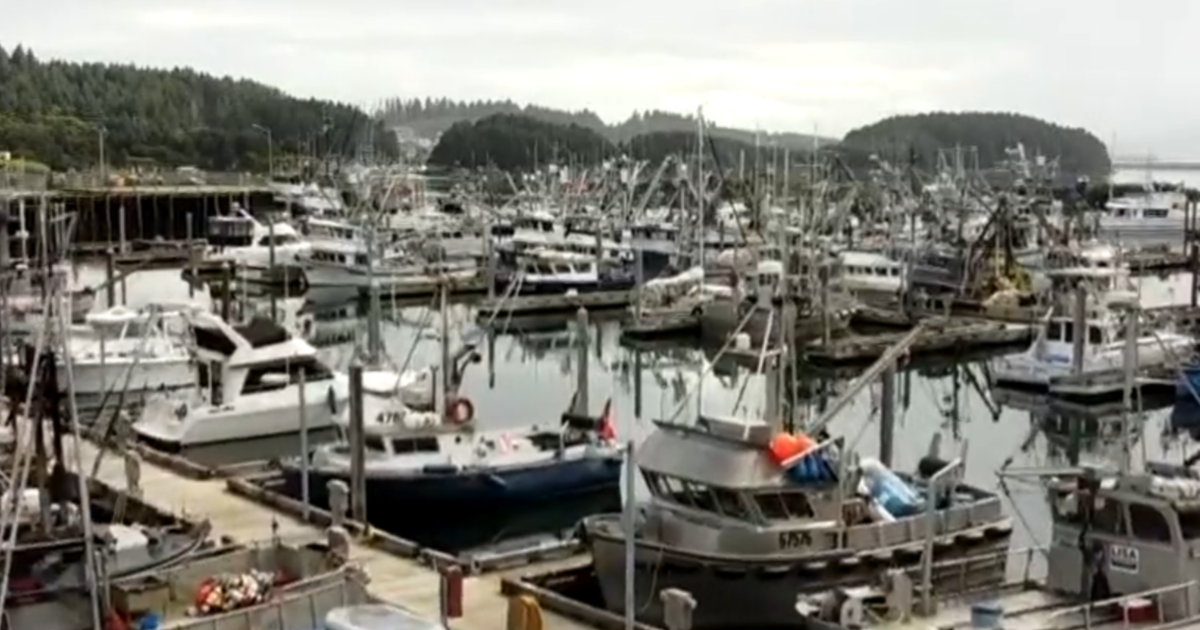Matted Joybeard
Gold Member
- Dec 2, 2014
- 698
- 246
- 178
Another sign of inexorable ecological collapse.

 www.cbsnews.com
www.cbsnews.com
When the season was canceled last year, there was a sense of confusion among the Alaska crab fisher community. Now, a sense of panic is taking hold in the state's fisheries, which produce 60% of the nation's seafood.
Gabriel Prout is grateful for a modest haul of king crab, but it's the vanishing of another crustacean variety that has the fishing port in Kodiak, Alaska, bracing for financial fallout; for the second year in a row, the lucrative snow crab season has been canceled.
"We're still definitely in survival mode trying to find a way to stay in business," he told CBS News.
When the season was canceled last year, there was a sense of confusion among the Alaska crab fisher community. Now, a sense of panic is taking hold in the state's fisheries, which produce 60% of the nation's seafood.
"It's just still extremely difficult to fathom how we could go from a healthy population in the Bering Sea to two closures in a row," Prout said.
And while he is barely holding on, others — like Joshua Songstad — have lost almost everything.
"All of a sudden, now I'm at home with no income and really not much to do," Songstad said.
The crisis first began in early 2022, after biologists discovered an estimated 10 billion crabs disappeared — a 90% plunge in the population.
"The first reaction was, is this real? You know, we looked at it and it was almost a flat line," said Ben Daly, a research coordinator with the Alaska Department of Fish and Game.
A recent survey of the species showed little sign of a rebound.
"Environmental conditions are changing rapidly," Daly told CBS News last year when the snow crab season was canceled for the first time ever. "We've seen warm conditions in the Bering Sea the last couple of years, and we're seeing a response in a cold-adapted species, so it's pretty obvious this is connected. It is a canary in a coal mine for other species that need cold water."

Alaska's snow crab season canceled for second year in a row as population fails to rebound
The snow crab crisis in Alaska first began in early 2022, after biologists discovered an estimated 10 billion crabs disappeared — a 90% plunge in the population.
When the season was canceled last year, there was a sense of confusion among the Alaska crab fisher community. Now, a sense of panic is taking hold in the state's fisheries, which produce 60% of the nation's seafood.
Gabriel Prout is grateful for a modest haul of king crab, but it's the vanishing of another crustacean variety that has the fishing port in Kodiak, Alaska, bracing for financial fallout; for the second year in a row, the lucrative snow crab season has been canceled.
"We're still definitely in survival mode trying to find a way to stay in business," he told CBS News.
When the season was canceled last year, there was a sense of confusion among the Alaska crab fisher community. Now, a sense of panic is taking hold in the state's fisheries, which produce 60% of the nation's seafood.
"It's just still extremely difficult to fathom how we could go from a healthy population in the Bering Sea to two closures in a row," Prout said.
And while he is barely holding on, others — like Joshua Songstad — have lost almost everything.
"All of a sudden, now I'm at home with no income and really not much to do," Songstad said.
The crisis first began in early 2022, after biologists discovered an estimated 10 billion crabs disappeared — a 90% plunge in the population.
"The first reaction was, is this real? You know, we looked at it and it was almost a flat line," said Ben Daly, a research coordinator with the Alaska Department of Fish and Game.
A recent survey of the species showed little sign of a rebound.
"Environmental conditions are changing rapidly," Daly told CBS News last year when the snow crab season was canceled for the first time ever. "We've seen warm conditions in the Bering Sea the last couple of years, and we're seeing a response in a cold-adapted species, so it's pretty obvious this is connected. It is a canary in a coal mine for other species that need cold water."

